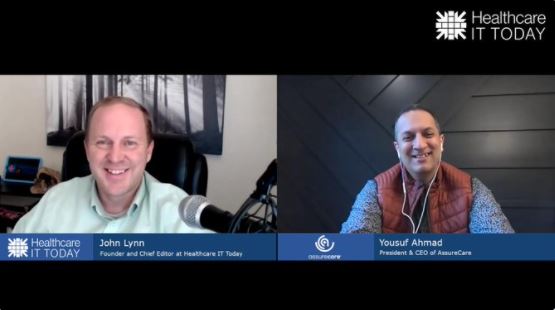
Utilization Management
Verify eligibility, optimize reviews, and streamline appeals and grievances.

Utilization Management
Verify eligibility, optimize reviews, and streamline appeals and grievances.

Care Management
Enable preventative care, manage medical interventions, and efficiently report on program outcomes.

Medication Management
Perform and bill medical services, ensure medications are safe and effective, and identify ways to improve care.

Quality Management
Improve outcomes, lower costs, and adhere to standards, such as HEDIS, Stars, and PQA.

Specialty Pharmacy

Raising public awareness about nutrition's role in preventive healthcare requires a comprehensive approach focused on evidence-based, attainable, and outcomes-driven goals. Access to covered nutrition therapy services in both public and private sectors is crucial for ensuring equitable access to resources that enable informed dietary choices. Consistency across nutrition programs enhances confidence in the information provided and underscores the importance of nutrition in overall health and wellness. Highlighting the benefits of nutrition interventions through success stories and health outcome data can inspire others to prioritize healthy eating.
Cultural sensitivity is vital, demanding tailored approaches that respect diverse dietary preferences and traditions. Addressing economic factors is also essential to ensure that nutrition services and meal options are accessible and affordable for all socioeconomic groups.
As nutrition professionals, our primary responsibility is to promote holistic preventive healthcare through dietary interventions and addressing social determinants of health (SDOH) barriers. Factors like access to nutritious food, socio-economic status, and cultural influences significantly impact health outcomes, making inclusivity in our approach essential. Careful tracking of outcomes is crucial to demonstrate the impact on disease burden and highlight the financial benefits of preventive nutrition interventions. Solid evidence of cost savings and improved health outcomes helps secure more funding and support for preventive services.
Nutrition is both preventive and therapeutic. Our interventions address existing health issues while preventing future complications, emphasizing the need for tailored nutritional strategies that optimize health outcomes. Ultimately, the role of nutrition professionals extends beyond prescribing diets to include advocacy, education, and collaboration across sectors to foster a culture of wellness and longevity.
Incorporating nutrition education into primary care is essential for advancing preventive healthcare. This begins by equipping all healthcare providers—not just nutrition specialists—with a foundational understanding of evidence-based nutrition therapies and guidelines. Providers like nurses, doctors, pharmacists, and social workers are often patients' first point of contact, and their insights can significantly impact patient behaviors. Thus, they need a basic understanding of nutrition principles to effectively deliver interventions.
Integrating dietary therapy and lifestyle guidelines into routine care creates a structured framework for providers, ensuring patients receive consistent and accurate information. Implementing technology support for in-workflow options helps incorporate nutrition interventions into patient interactions, keeping nutritional considerations central to care delivery. Social workers play a crucial role in securing food benefits and options to maintain prescribed diets, helping overcome barriers related to food access and affordability.
Having dedicated support systems involving registered dietitian nutritionists within primary care teams provides invaluable resources. These professionals collaborate with providers, offering specialized expertise and guidance, enhancing the quality of nutritional care. Providers must also know when to refer patients to higher levels of nutrition care, ensuring care tailored to their specific needs
Collaboration between nutrition professionals, including registered dietitian nutritionists (RDNs), and other healthcare professionals is essential for strengthening preventative healthcare efforts and promoting holistic wellness. Several collaboration opportunities exist across various aspects of healthcare delivery:
Referring: Collaboration between nutrition professionals, like registered dietitian nutritionists (RDNs), and other healthcare providers is vital for enhancing preventative healthcare efforts. With the rise of telehealth, RDNs can supplement traditional medical practices effectively.
Using trusted telehealth nutrition companies offers a practical solution for expanding services in healthcare facilities lacking dedicated dietitians. Through remote dietary counseling and education, RDNs can complement the care provided by primary care physicians, extending preventative healthcare initiatives, especially in underserved areas. RDNs can collaborate with interdisciplinary healthcare teams, integrating nutrition services into telehealth platforms and electronic health records for seamless, coordinated care.
Program Design: RDNs can contribute their expertise to the design and implementation of healthcare programs aimed at promoting preventative health measures. By collaborating with healthcare administrators, program managers, and public health officials, RDNs can help develop evidence-based interventions that prioritize nutrition education, dietary counseling, and lifestyle modification. This interdisciplinary approach ensures that programs are tailored to meet the diverse needs of patients and communities.
Collaborative Care Model: Adopting a collaborative care model facilitates the seamless integration of nutrition services into interdisciplinary care teams. RDNs can work alongside physicians, nurses, pharmacists, social workers, and other healthcare professionals to provide comprehensive, patient-centered care. This model allows for shared decision-making, coordinated care planning, and ongoing communication among team members, leading to improved health outcomes and patient satisfaction.
Technology and digital platforms present unparalleled opportunities to enhance the reach and impact of nutrition professionals in healthcare. Digital platforms offer flexibility in connecting with patients in meaningful ways. By accommodating patients' preferences—such as text-based communication or asynchronous updates—nutrition professionals can tailor interactions effectively. For example, incorporating features that allow patients to input their grocery preferences can help customize nutritional recommendations.
Furthermore, digital platforms should equip nutrition professionals with tools to manage patient rosters efficiently, including functionalities for patient outreach and scheduling appointments. Billing flexibility is crucial for sustainability and accessibility. Digital platforms should support various billing options, ensuring multiple avenues for patients to access nutrition services.
Policymakers must engage with experts from industry, professional organizations, government programs, and the food industry to create effective evidence-based policies. Agencies such as the USDA, FDA, VA, and CMS play pivotal roles in shaping nutrition policy, while organizations like the Academy of Nutrition and Dietetics (AND) provide valuable insights. Input from the food industry and public opinion further informs policy development.
Policy should not be developed in a vacuum; it must be grounded in real-world needs and diverse perspectives. Incorporating ideas that support the population throughout their lifecycle and circumstances ensures initiatives address the full spectrum of nutritional needs. Events like the White House Conference on Hunger, Nutrition, and Health exemplify effective platforms for dialogue among policymakers, industry leaders, and healthcare professionals, facilitating comprehensive strategies. Collaborations such as this will be paramount in sustaining and accelerating momentum in the “Food as Medicine” sector and beyond.
The future of preventive healthcare is set for transformation, with a growing emphasis on holistic approaches prioritizing wellness and disease prevention. As healthcare systems move toward value-based care models and population health management, nutrition professionals have significant opportunities to play a central role. Integrating technology and data analytics into preventive healthcare allows for tracking health metrics and facilitating personalized interventions. Nutrition professionals can use these tools to deliver targeted dietary guidance, empowering individuals to make healthier lifestyle choices.
There is growing recognition of the impact of SDOH on well-being. RDNs are uniquely positioned to address these factors by advocating for policies promoting food security, access to healthy foods, and nutrition education in underserved communities. Collaborating with community organizations, they bridge the gap between healthcare and social services, improving health outcomes and reducing disparities.
The rise of value-based care models presents opportunities for nutrition professionals to demonstrate the cost-effectiveness of preventive nutrition interventions. By generating robust evidence of dietary interventions' impact on health outcomes and costs, they can advocate for greater integration of nutrition services into healthcare systems and reimbursement models.
 With a rich background in clinical dietetics and population health management, Brian Jones seamlessly merges health technology with human well-being. His unique perspective and affiliations with esteemed organizations highlight his dedication to driving positive change. Over his 17-year career, Brian has brought adaptability and determination to AssureCare, where he leverages his diverse skills to lead transformative advancements in health technology. As a passionate advocate for evidence-based practice, Brian is committed to enhancing individual health and promoting holistic well-being by connecting care seamlessly. Residing in Southeastern Tennessee with his wife and two children, he is an avid auto enthusiast and has a deep appreciation for culinary delights, both in creating and savoring them.
With a rich background in clinical dietetics and population health management, Brian Jones seamlessly merges health technology with human well-being. His unique perspective and affiliations with esteemed organizations highlight his dedication to driving positive change. Over his 17-year career, Brian has brought adaptability and determination to AssureCare, where he leverages his diverse skills to lead transformative advancements in health technology. As a passionate advocate for evidence-based practice, Brian is committed to enhancing individual health and promoting holistic well-being by connecting care seamlessly. Residing in Southeastern Tennessee with his wife and two children, he is an avid auto enthusiast and has a deep appreciation for culinary delights, both in creating and savoring them.

Brian Jones
RDN, CCM, POPM, FAND, Clinical Product Manager, AssureCare


Yousuf Ahmad
December 7, 2021

Stay in the know
The latest healthcare insights. Straight from our experts to your inbox.